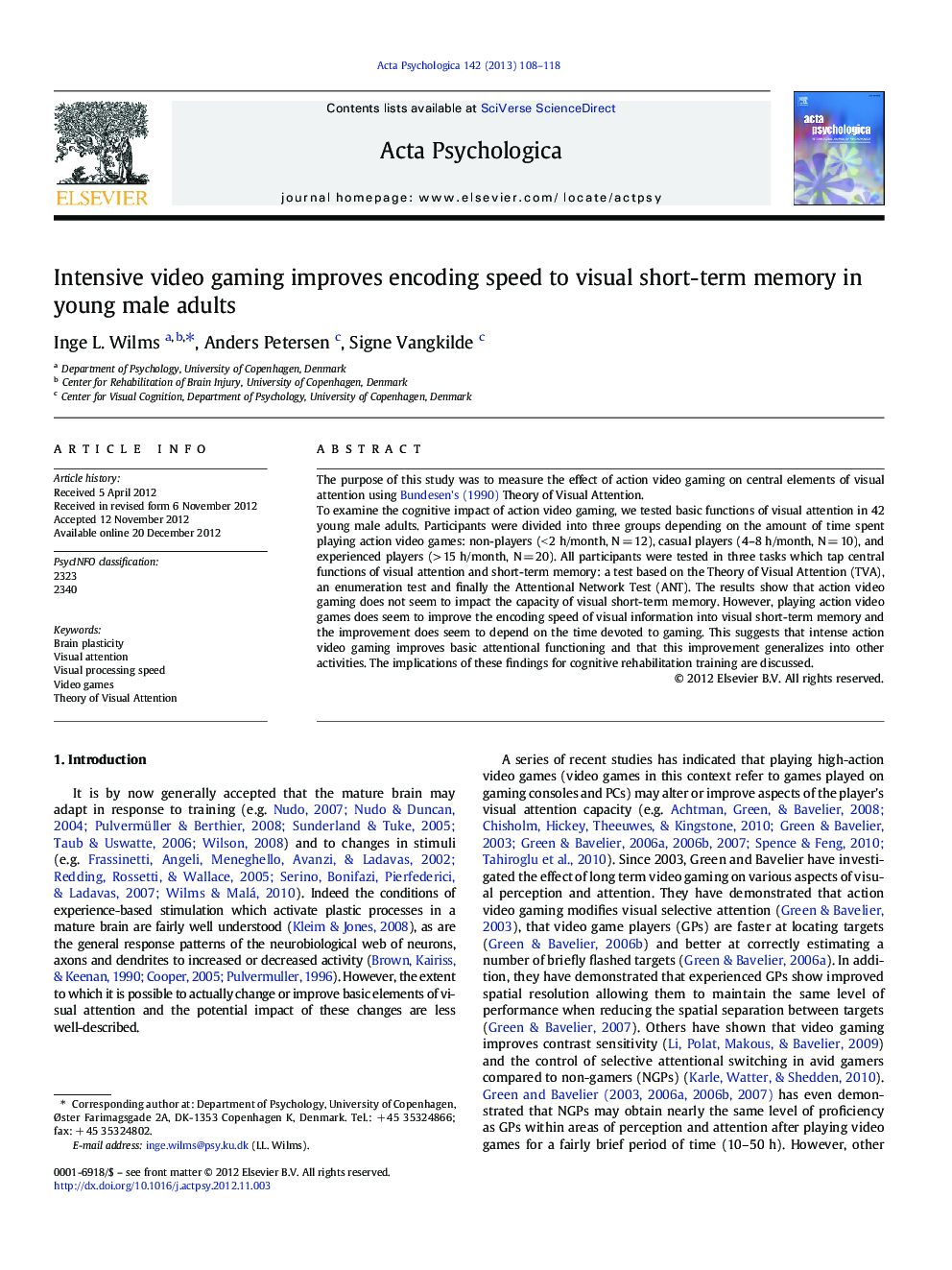| Article ID | Journal | Published Year | Pages | File Type |
|---|---|---|---|---|
| 919943 | Acta Psychologica | 2013 | 11 Pages |
The purpose of this study was to measure the effect of action video gaming on central elements of visual attention using Bundesen's (1990) Theory of Visual Attention.To examine the cognitive impact of action video gaming, we tested basic functions of visual attention in 42 young male adults. Participants were divided into three groups depending on the amount of time spent playing action video games: non-players (< 2 h/month, N = 12), casual players (4–8 h/month, N = 10), and experienced players (> 15 h/month, N = 20). All participants were tested in three tasks which tap central functions of visual attention and short-term memory: a test based on the Theory of Visual Attention (TVA), an enumeration test and finally the Attentional Network Test (ANT). The results show that action video gaming does not seem to impact the capacity of visual short-term memory. However, playing action video games does seem to improve the encoding speed of visual information into visual short-term memory and the improvement does seem to depend on the time devoted to gaming. This suggests that intense action video gaming improves basic attentional functioning and that this improvement generalizes into other activities. The implications of these findings for cognitive rehabilitation training are discussed.
► Investigates the effect of action computer gaming ► Examines visual short term memory and encoding speed ► Compares results from the CombiTVA test (TVA model) with previous findings ► Encoding speed improves as gaming intensity increases ► No apparent effect on visual short term memory
